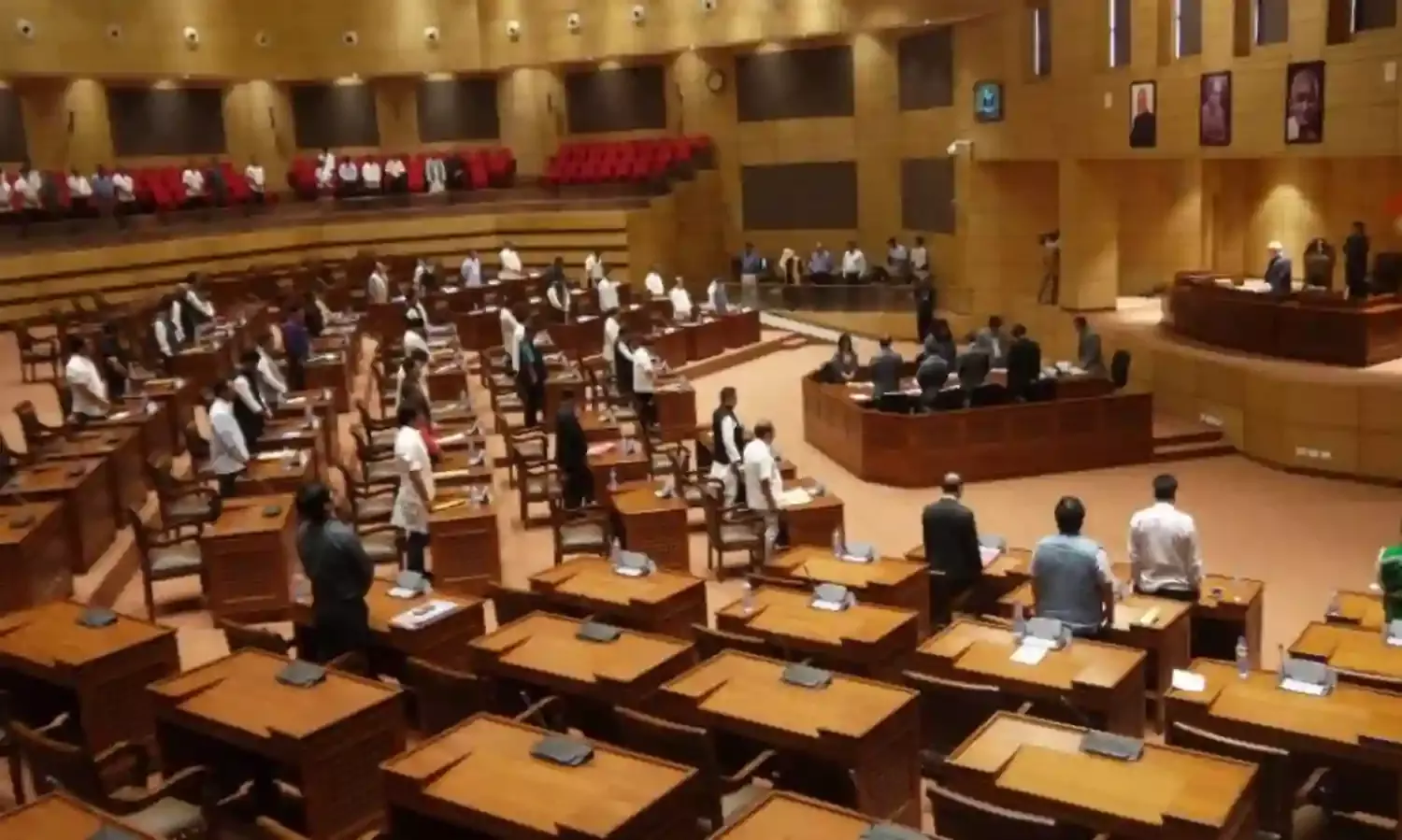Arunachal Assembly Resolves to Change State’s Constitutional Status
A scramble for autonomy?

ITANAGAR: The Arunachal Pradesh legislative assembly yesterday passed a resolution paving the way for changes to the state’s constitutional status.
Tabled by Home Minister Bamang Felix of the BJP, the resolution calls for Arunachal Pradesh to be included in the Sixth Schedule of the Constitution “to protect tribal rights of the indigenous people”.
It also calls for “strengthening” provisions in Article 371-H, which governs the state’s constitutional status, for the “protection of religious or social practices of the tribes of the State, customary law and procedure of the State’s tribes, administration of civil and criminal justice involving decisions according to customary law of the tribes, and ownership and transfer of land and its resources”.
It was in 2003 that calls were first made for the formation of two autonomous councils – Mon comprising the Tawang and West Kameng districts in the west, and Patkai comprising the Tirap, Changlang, and later Longding districts in the east – as political bargaining tools.
Since then, state governments of different stripes have given these autonomous councils their nod.
This time a July 29 meeting of the Mon Autonomous Region Demand Committee, whose members later met Chief Minister Pema Khandu, sparked the fire with renewed calls and debate.
Khandu came under criticism and faced accusations of indulging in divisive politics at a time the world is coping with the effects of the pandemic. He responded by calling for wider discussion with tribal organisations in the state, to debate the constitutional and other legal requirements to protect tribal interests.
Arunachal Pradesh is currently administered by the Bengal Eastern Frontier Regulation, which restricts the entry of persons into the state including Indian citizens from other states, and the ownership of land by people not belonging to one of 26 recognised tribes.
Unlike Assam, Meghalaya, Tripura, and Mizoram where the Sixth Schedule provides for the creation of autonomous councils in tribal areas, indigenous communities in Arunachal Pradesh have no such constitutional provision.
Areas not governed by the Sixth Schedule can still have territorial councils – such as the Ladakh Autonomous Hill Development Councils of Kargil and Leh, or the Gorkhaland Territorial Administration in Bengal – which provide limited protection to indigenous people’s rights.
Article 371-H gives special powers to the governor of Arunachal Pradesh, but makes no provision for protecting the land rights, resources, and customary laws of the tribal communities who live here.
In this regard it is unlike Article 371-A in Nagaland or 371-G in Mizoram, which restrict the ownership of land but not of land resources.
Calls have repeatedly been made to amend Article 371-H, and it was this that dominated the discussion at a recent meeting of tribal bodies who came together to discuss the issue.
With tribal representative bodies from the Mon and Patkai regions arguing that these autonomous councils were required, organisations representing other communities opposed them, saying that in a state populated by more than 20 tribes, the entire state needs special constitutional protection.
That meeting took place on August 19. Moving the resolution yesterday, Felix said the state government would also seek amendments to protect the religious, social practices of the tribes of the state, their customary laws and procedures, the administration of civil and criminal justice involving decisions according to customary laws, and the ownership and transfer of land and its resources.
Wanglin Lowangdong, Congress MLA for the Borduria-Bogapani constituency in Tirap district, spoke in favour of the resolution describing it as “the need of the hour”.
He said that autonomous councils could “bring about a revolution in the development of the state”.
Jikke Tako, the Janata Dal (United) MLA from Tali, said the state would not need to be included in the Sixth Schedule if Article 371-H were amended.
Calling for such an amendment, Tako said the state government was unaware of the governor’s powers until J.P Rajkhowa was appointed to the office in 2016.
That was the tumultuous period when Rajkhowa began exercising considerable control from the governor’s mansion during a power tussle between former chief ministers Nabam Tuki and the late Kalikho Pul, both of the Congress.
Tako’s point that an amendment should suffice is important given the opposition to the autonomous councils’ demands. It is the Sixth Schedule which empowers state governors to create autonomous councils.
During the August 19 meeting, the Galo Welfare Society’s general secretary Gomar Basar said that awarding autonomy to selective areas would lead to a “scramble for autonomy leading to communal fights and trouble”.
He later said the Society supports the demand to include the state in the Sixth Schedule.
The general secretary of the Nyishi Elite Society, Heri Maring, stated that it too supports the state’s inclusion in the Sixth Schedule.
Organisations that had earlier opposed the perceived division of the state along autonomous council lines have also extended their support to the state government now to bring the state under the Sixth Schedule’s purview.
The All Arunachal Pradesh Students’ Union, which has been explicit in its opposition to creating autonomous councils, has also agreed to the proposal.
General secretary Tobom Dai said that AAPSU would lay emphasis on amending Article 371-H, “but since most of the community organisations are vouching for the Sixth Schedule, we are not opposing it as well”.
At the end of the legislative assembly’s three-day session which was compressed to a single day, Khandu stated that his government would appoint a committee to study the legalities of the resolution before sending it the Centre for its consideration and approval.



